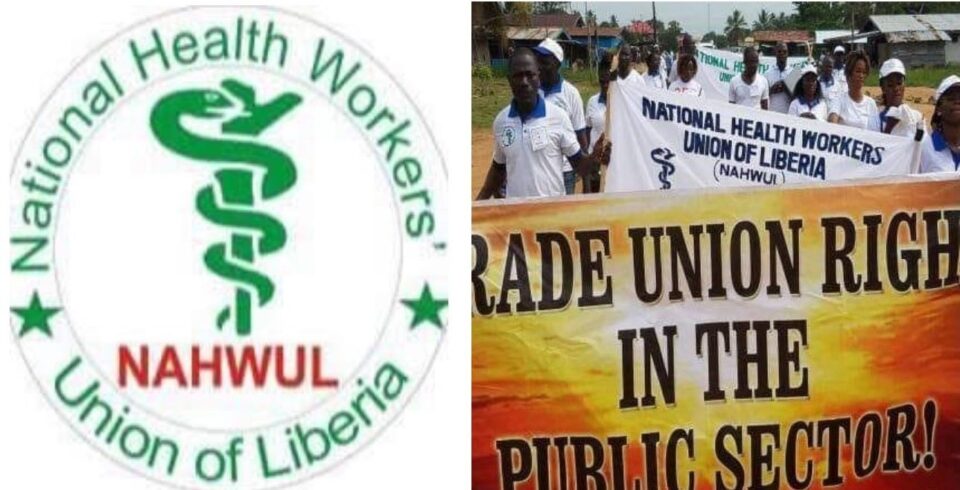PHOTO: The National Health Workers Union of Liberia wants more investments in the country’s health sector (health workers union)
By Success Toe Brown
MONROVIA, Liberia—Health is undisputedly life. Everything that humanity does from cleaning the environment, to treating illnesses, to the provision of pure, clean and safe drinking to properly cooked food, is tied to health. In summary, there’s nothing that any human can successfully do without being healthy.
That’s why developed nations pump billions of dollars into health—funds spent on the citizenry, including healthcare workers, who risk their lives to save lives. Africa, which has “1,491,883,304 or 17.89%” of the world’s more than 8.1 billion poulation, according to the United Nations Population Fund(UNFPA), looked to have taken a major step to increase its funding to health, with governments pledging in 2001 through a document known as the “Abuja Declaration” to contribute “15% of their national budgets to health.” Some countries have achieved such a feat, including instituting workable reforms to better their healthcare systems.
Liberia has been making some strides in this area as well, with the country allocating “14.6% of the overall government budget to the health sector in fiscal year (FY) 2017/18,” according to Palladium Group, an international development advisory firm. In its recently approved 2024 national budget, the amount of $US79,901200 was allotted for health in the country’s overall financial envelope of $US738,859,827.00.
Experts say while that’s commendable, Liberia’s healthcare sector needs more funding, with “1,100 women and 8,510 new-born dying annually during childbirth in Liberia,” according to a report released this month by H6 Partnership, which comprises the UNFPA, UNICEF, UN Women, WHO, UNAIDS, and the World Bank Group. The body seeks “to advance the Every Woman Every Child (EWEC) Global Strategy and support country leadership and action for women’s, children’s and adolescents’ health.” Not only that, Liberia’s heath sector still faces acute drug shortages, with many patients told by govenrment-run hospitals and health facilties to buy their own precribed drugs for their treatment. It’s agaisnt this backdorup that the National Health Workers Union of Liberia is joining other partners, including the trade unions and civil society organizations for “increase and stratigic investment in the health sector.” This will help “boost more efficient service delivary and reduce to the barest minimum medical tourism, which is idenified as one of the banes of the Liberian economy,” according to Jerry Kollie, President of the health workers’ union. “Our health sector is hugely challenged and if nothing is done to address some of the many challenges faced, equality service delivery to our beloved citizens will not be achieved.”
As a health worker himself, Mr. Kollie seen first-hand the numerous challenges facing the sector, compounded by Liberia’s economic crisis.
“The health facilities are often lack of drugs and medical supplies, staff salaries especially midlevel workers are not meeting their economic needs in the current economic situation in country, patients go to health facilities, their conditions are assessed, diagnosed and given prescriptions instead of the required drugs as we are running free services.”
He says such issues also negatively impact the lives and mental health of health workers.
“Psychosocially, health workers are impacted, as they are at health facilities with arms but no ammunition,” noted Mr. Kollie. “And worst of it, most of our facilities’ infrastructures do not represent healthcare facilities where patients should go and feel comfortable. Water and electricity are if not available, ration. It is time that our government and partners rise and intervene.”

Mr. Jerry Kollie, President of the National Health Workers Union of Liberia
Experts say the move by the health workers’ union and their partners to push for more funding and support to the sector is timely and rewarding and will help accelerate ongoing efforts aimed at attracting more direct Liberian government’s funding and donors’ support to the health sector, which is at the heart of the country’s growth and development, especially the wellbeing, security and safety of its citizens and foreigners alike.

